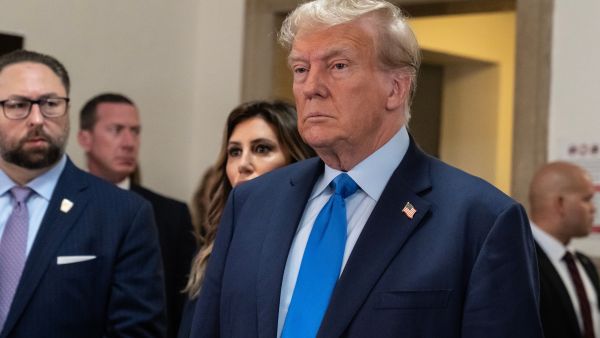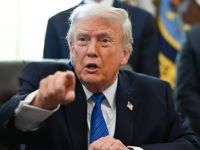July 2 (UPI) -- After the Supreme Court issued its landmark ruling that Donald Trump has some immunity from prosecution for officials act, his lawyers moved to dismiss his recent New York conviction for crimes he committed prior to being president, according to reports.

The former president's attorneys Monday sent a letter to Judge Juan Merchan, who oversaw the election interference and hush money trial, asking for their client's conviction to be quashed, The New York Times, NBC News and ABC News reported, citing unidentified sources with knowledge of the development.
Trump faces up to four years in prison on July 11 when he is to be sentenced on 34 charges for doctoring business records to hide hush money payments made to porn star Stormy Daniels in the run up to the 2016 election. The prosecution had argued the payments were made over fears Daniels going public about an alleged affair would cost Trump votes.
The former president was convicted in late May in that case, but he still faces dozens of charges in three other trials.
In Washington, he is fighting four counts related to his role in attempting to stop the certification of the 2020 presidential election of Joe Biden and the Jan. 6, 2021, insurrection at the Capitol.
In that case, his attorneys have argued Trump is shielded by absolute presidential immunity, a claim that the government took all the way to the Supreme Court.
The justices ruled 6-3 Monday that Trump does enjoy some immunity for officials acts.
According to the reports, Trump's lawyers asked Merchan to postpone sentencing Trump in order for them to make their case that the Supreme Court's ruling affects the New York verdict.
It has been a tactic of Trump's legal team to postpone their client's trials as he runs as the presumptive Republican nominee for a third time. However, it was unclear if Monday's request would have any bearing on Trump's conviction as the prosecution's case focused on actions Trump took before he was elected president in November 2016.
He is also fighting a second election interference case in Georgia and a third federal indictment over the mishandling of classified documents.








